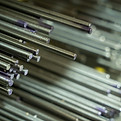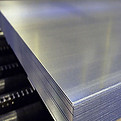Super Duplex 32760 (1.4501/F55)
Exceptional corrosion resistance & high strength in one reliable, high-performance alloy, trusted for the world’s toughest industrial environments.
Super Duplex 32760
Super Duplex 32760 is a premium-grade stainless steel designed for extreme-service environments where both mechanical performance and corrosion resistance are paramount. Engineered for the world’s most corrosive and high-pressure environments, this super duplex grade combines austenitic toughness with ferritic strength, delivering unmatched durability and resistance to cracking under stress, heat, and chloride exposure.
With elevated levels of chromium, molybdenum, tungsten, nitrogen, and copper, it provides enhanced protection against pitting, crevice corrosion, and chloride stress corrosion cracking, even in high-salinity, high-pressure conditions. Super Duplex 32760 is widely used across offshore platforms, subsea systems, desalination units, and chemical processing plants, offering long service life and structural reliability in some of the world’s harshest environments.
AVAILABLE FORMS
Intamet offers 32760 in a wide range of forms, including:

Tubes & Pipes

Fitting & Flanges

Round Bars

Sheet & Plate
FAQs: Super Duplex 32760
Need assistance or more information?
Get in touch with us today!
Have questions or need more details about this product?
Our team is here to provide expert guidance and ensure you have all the information you need to make the right choice for your project, contact us today with an enquiry!
